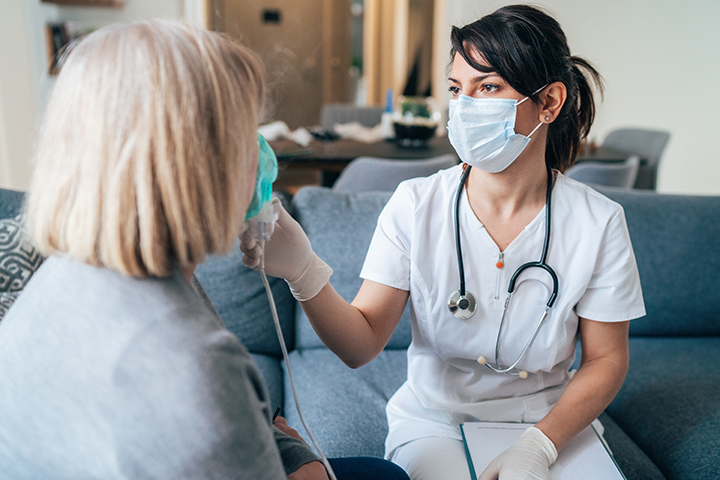Helping our most vulnerable at 3 a.m.

When North York General Hospital (NYGH) started enacting it’s first set of measures to tackle COVID-19, one of the first steps taken was to connect with community partners to ensure we were working together and lending our expertise.
In North York there has been a coordinated approach to distributing personal protect equipment, testing swabs, staffing and ensuring necessary infection prevention measures are in place in all care settings. Despite all the pandemic planning efforts and social distancing measures, COVID-19 has unfortunately impacted seniors and staff in long-term care (LTC) homes the hardest. However, the more difficult the situation has become, the more NYGH and our community partners have pulled together.
Dr. Nancy Down, a surgeon at North York General, and her husband Dr. Ian Soutter, a surgical assistant, were at home on a recent Sunday afternoon when they received an email about the need to cover shifts at LTC home for staff who had fallen ill. Although the home wasn’t in need of surgical expertise, Dr. Down was ready to lend her hands and heart.
“There really wasn’t any hesitation,” says Dr. Down. “I turned to Ian and said, ‘we can do this’ and we signed up.”
By 3 a.m. on Monday, Dr. Down and Dr. Soutter were pulling into the parking lot of the long-term care home ready to start a four-hour shift.
“We didn’t quite know what to expect, but we were willing to help any way we could,” says Dr. Down. “Right from the outset we had all of the personal protective equipment needed, which was key to keeping ourselves and residents safe.”
The two surgeons relieved Dr. Kimberly Wintemute and Dr. Melissa Singer, who had been volunteering to cover the pervious shift. Dr. Down teamed up with a personal support worker (PSW) to help care for 24 patients living on the second floor of the home. Upon learning Dr. Down was a NYGH surgeon volunteering to help residents, the PSW began affectionately introducing “Dr. Nancy” to all the residents.
Together they visited each room turning residents to prevent bed sores, ensuring they were comfortable and asleep. Dr. Down helped to reassure residents who were restless, and walked the halls with one individual who was having trouble settling.
“During our time together, I learned the PSW I was supporting had a choice to work in a home where there were no cases of COVID-19 or the one we were at, which did have COVID-19 positive residents,” says Dr. Down. “Despite the high risks involved, she chose to continue caring for patients with the virus, wanting to be by their side. It showed me that a situation like this pandemic can bring out the best in people.”
Side by side, the two started at the first room again changing incontinence briefs, washing, turning patients and providing the caring touch residents were so accustomed to receiving.
“Ian and I ended our shift feeling really grateful we were able to respond during this crisis,” says Dr. Down. “We definitely gained perspective on how different parts of the system are being impacted by COVID-19.”
